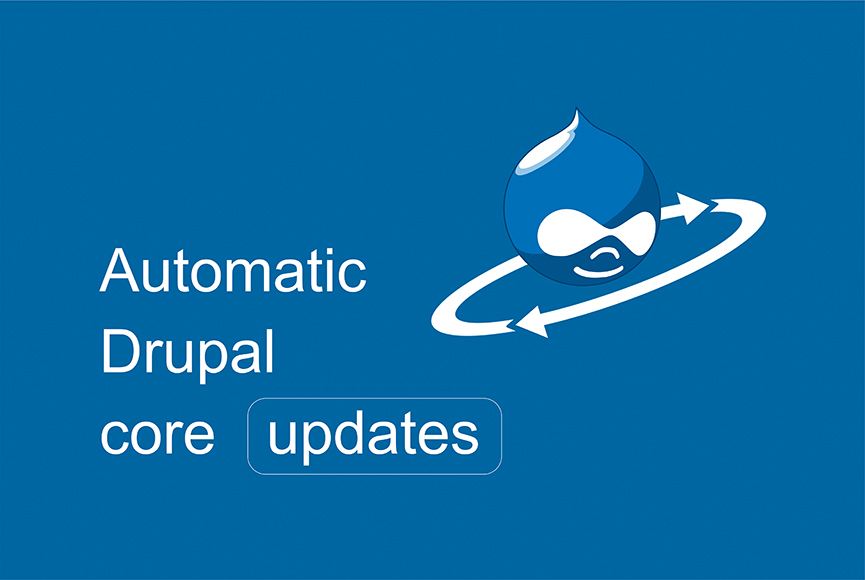Ngày 10.4.2019, Drupalcon Bắc Mỹ đã được tổ chức tại Seattle, nơi Dries đã khai mạc hội nghị với "Driesnote" truyền thống. Trong bài thuyết trình, Dries đã nói về các bản cập nhật tự động cho Drupal, một điều tôi rất đam mê về bản thân. Sau đó, ông tiếp tục nói:
Tôi hy vọng rằng ở Drupalcon Amsterdam ... trong sáu tháng nữa, tôi sẽ có thể đứng trên sân khấu và thực sự đưa ra một số bản demo. Đó sẽ là mục tiêu của tôi. Vì vậy, rõ ràng là tôi sẽ cần sự giúp đỡ của bạn với điều đó nhưng điều đó thật tuyệt vời.
Điều này đã kích hoạt một suy nghĩ: với các công cụ chúng ta có ngày hôm nay, và vì sự hỗ trợ của nhà soạn nhạc khá tốt, chúng ta thực sự có thể giới thiệu mục tiêu hơi khó tin này ngay bây giờ. Đó là lý do tại sao tôi làm một video về điều đó.
Automatic updates and the future
This demo demonstrates tools that are available now. Instead of only focusing on those tools (and promoting violinist.io), I want to expand on the subject of automated updates in Drupal, and its future.
Like for Dries, automatic updates is an important issue to me. Not only because I promote running automated composer updates with violinist.io, but because having these features will make Drupal more viable for hobbyists and beginners. Which in turn is something that can help us reach more users, and increase our diversity. Consequently, having automated updates is important for the “non-professional” group of Drupal users.
In the presentation, Dries also points out some important positive effects of having automated updates. First, it will help securing your site (or your client's site) when time-critical security updates are released. Second, it will make it easier for organizations and agencies to maintain websites. This means that having automated updates is important for the “professional” group of Drupal users as well.
This brings us to the next segment, which mostly applies to agencies and organizations using Drupal professionally. Two issues are often raised about having automated updates. First, that moving and/or overwriting the files of your codebase is a security risk. Second, that updating files on your live server can be a no-go. Maybe you have a version control system in place. Or perhaps you have a continuous integration/deployment pipeline. Or, you have setups that deploy their codebase to multiple front-servers. The two issues are valid concerns, but usually they are less of a concern to "non-professional" users. This implies that having automated updates is important for the “professional” AND “non-professional”, but the preferred implementation for these two groups might conflict.
In my personal opinion, we can support both. Let me explain how.
My suggestion is that we can have a system in place that is pluggable in all parts. This means that the "non-professional" can use plugins that are useful for updating via the file system, and hopefully set-and-forget the automatic updates for their site. It also means that the "professional", the one with the pipeline and version control, could have entirely different plugins for updates. To get back to the video above, a pre-flight check (which is how we determine if we can update) can mean checking for pull requests for the available update, and checking that the tests pass. The plugin for updating could simply merge the pull request, since automated deploys are run for the master branch. Now, different teams have different requirements, but this means that you could use a Pantheon or Platform.sh plugin for automated updates. Or, maybe you have a custom plugin for your team that you use across projects.

I believe this feature can help automation for "professional" teams of all sizes, and make the very same system usable for "non-professionals" that want to set-and-forget. This is also why I believe having automated updates in core, is in no way in conflict with doing automated updates like in the video above. It will only complement the toolbox we currently have!
If you want to read more about the Automatic Updates initiative, there is more info here. It is an exciting future, and we can all help out in making the future more user-friendly and secure. I know I will!
































